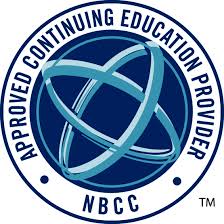Learn and Earn Over Lunch Series
Thanks for being part of our community!
The Learn and Earn over Lunch series is an opportunity to earn free NBCC approved continuing education credits from outstanding trainers, while you eat lunch! Join us online (via Zoom) from noon to 1:00pm Pacific Time every month on the second Wednesday.
In addition, feel free to take a look at our other training offerings as well as employment opportunities at PDBTI!
From Complexity to Clarity: Why MED-DBT and How to Target Multiple High-Risk Behaviors in Multidiagnostic Eating Disorders


Anita Federici, PhD FAED
Lucene Wisniewski, PhD FAED
January 14th, 2026
Registration will close January 13th, 2026
Clinicians working with clients who have eating disorders alongside suicidality, self-injury, trauma, neurodiversity, or OCD conditions often find themselves unsure how to effectively manage the eating disorder within the broader clinical picture. Traditional eating disorder and DBT models tend to address these problems in isolation, leaving providers without a clear way to prioritize, sequence, or integrate care when multiple high-risk behaviors occur simultaneously.
Multidiagnostic Eating Disorder–Dialectical Behavior Therapy (MED-DBT) was developed to address these challenges. This 60-minute webinar will provide an overview of MED-DBT, including its rationale, structure, and stage-based approach to organizing treatment for high-risk and multi-layered ED presentations. Special attention will be given to the MED-DBT target hierarchy, a practical framework that helps clinicians prioritize behaviors, maintain therapeutic direction, and support collaboration when multiple problems compete for attention.
Drawing on over two decades of clinical work and program development, Drs. Anita Federici and Lucene Wisniewski will outline how MED-DBT supports real-world decision-making for clients who often fall through the cracks of standard systems of care.
Learning Objectives
By the conclusion of this event, participants will be able to:
- Describe the rationale and structure of MED-DBT.
- Explain how MED-DBT differs from standard ED and DBT models.
- Identify the purpose and application of the MED-DBT target hierarchy.
- Recognize how a stage-based structure enhances safety and collaboration.
Instructor | Anita Federici, PhD, C.Psych, FAED, is a clinical psychologist and founder of The Centre for Psychology and Emotion Regulation, specializing in eating disorders, personality disorders, and trauma. An international trainer and consultant, she has delivered over 400 presentations on DBT and ED treatment and co-authored Treating Eating Disorders with DBT: The MED-DBT Protocol.
Instructor | Lucene Wisniewski, PhD, FAED, is a clinician, trainer, and researcher specializing in evidence-based treatments for eating and co-occurring disorders. An Adjunct Assistant Professor at Case Western Reserve University, she has delivered over 150 international trainings and published more than 40 papers. She directs The Center for Evidence Based Treatment Ohio and co-authored Treating Eating Disorders with DBT: The MED-DBT Protocol.
It’s Time to Wrap Up – Ending DBT for Your Clients’ Sake and Yours

Christopher Conley, MSW, DSW, RSW
February 11th, 2026
Registration will close February 10th, 2026
This workshop will review DBT-consistent contingencies for continuing, pausing, or ending treatment; clinician and system factors that keep ineffective treatment going; and practical strategies for having clear, compassionate termination and re-contracting conversations that prioritize client welfare and program integrity.
Learning Objectives
By the conclusion of this event, participants will be able to:
- How to set the stage in pre-treatment and program considerations for effective endings
- Identify at least three indicators that a DBT treatment has become ineffective or potentially harmful
- Describe at least two DBT-consistent strategies for structuring treatment duration and re-contracting
Instructor | Christopher Conley is a clinical social worker and is certified through the DBT Linehan Board of Certification as a Certified Clinician™. He has over 18 years of experience working in a wide range of services including child welfare, emergency psychiatry, outpatient mental health, juvenile justice, and in implementing evidence-based treatments in community services. He has been providing comprehensive DBT treatment since 2005 with adolescents and adults. Currently, Christopher volunteers for the DBT Linehan Board of Certification as an adherence coder. He is experienced in a number of behavioral and cognitive behavioral treatments including Prolonged Exposure (PE) for PTSD, Exposure and Response Prevention (ERP) for OCD, and CBT treatments for mood and anxiety disorders. He is an approved PE consultant and supervisor with Dr. Edna Foa. In addition to his clinical work and consultation services, Christopher is an Assistant Clinical Professor (PT) in the Department of Psychiatry and Behavioral Neurosciences at McMaster University where he has supervised psychiatry residents in DBT and taught medical students interviewing skills, applied ethics, and evidence-based practice. He has led many DBT trainings for teams and individuals and is actively involved in funded research studies.
Liberating Healing: Clinician Foundations in Black and Liberation Psychology

Shawntell Nicole Pace, PhD
March 11th, 2026
Registration will close March 10th, 2026
This foundational session introduces clinicians to culturally responsive clinical praxis through the lenses of Black Psychology and Liberation Psychology. Participants will explore how systems of oppression and racialized trauma shape the lived experiences of Black clients and how clinicians can engage in praxis that centers cultural knowledge, empowerment, and collective healing. Grounded in both scholarship and applied reflection, this session invites clinicians to transform their work from culturally competent to liberation-centered—bridging awareness with intentional, healing practices that affirm Black wellness and agency.
Learning Objectives
By the conclusion of this event, participants will be able to:
- Define culturally responsive clinical praxis and describe how it is informed by Black and Liberation Psychology frameworks.
- Explain how racial trauma and race-related stress manifest in the emotional, cognitive, and relational domains of Black clients.
- Identify one culturally responsive and liberation-centered strategy to strengthen therapeutic rapport and assessment with Black clients.
Instructor | Dr. Shawntell Nicole Pace is a nationally recognized scientist-practitioner-advocate whose work bridges science, culture, and healing. Rooted in Black Psychology, decolonial theory, and Liberation Psychology, she integrates ancestral wisdom with evidence-based clinical practice to advance culturally responsive mental health care. Dr. Pace holds a PhD in Counseling Psychology and a master’s in clinical Mental Health Counseling from the University of Georgia and currently serves as a Postdoctoral Fellow in Trauma & Acute Care Surgery at the Medical College of Wisconsin.
Her research and clinical work focus on culturally congruent trauma interventions that honor Black and Brown communities’ collective resilience, spiritual wholeness, and radical self-reclamation. As a graduate-level educator and consultant, she trains emerging and practicing clinicians to engage in liberation-based, justice-centered praxis that moves beyond cultural competence toward transformative healing.
A TEDx speaker, Dr. Pace has been nationally recognized for her contributions to racial trauma research and decolonial healing frameworks. She remains clear in her calling: a psychologist for the people—committed to healing as a radical act of justice, rooted in culture, community, and the pursuit of collective liberation.
Dr. Pace will be offering a 3-hour followup training on this topic on June 26, 2026!
FREE CONTINUING EDUCATION CREDIT
 Participants who attend an event in this series will earn one free continuing education credit, NBCC approved.
Participants who attend an event in this series will earn one free continuing education credit, NBCC approved.
Portland DBT Institute has been approved by NBCC as an Approved Continuing Education Provider, ACEP No. 6326. Programs that do not qualify for NBCC credit are clearly identified. Portland DBT Institute is solely is responsible for all aspects of the programs.

Portland DBT Institute, Inc. (PDBTI) is approved by the American Psychological Association to sponsor continuing education for psychologists. PDBTI maintains responsibility for this program and its content.

